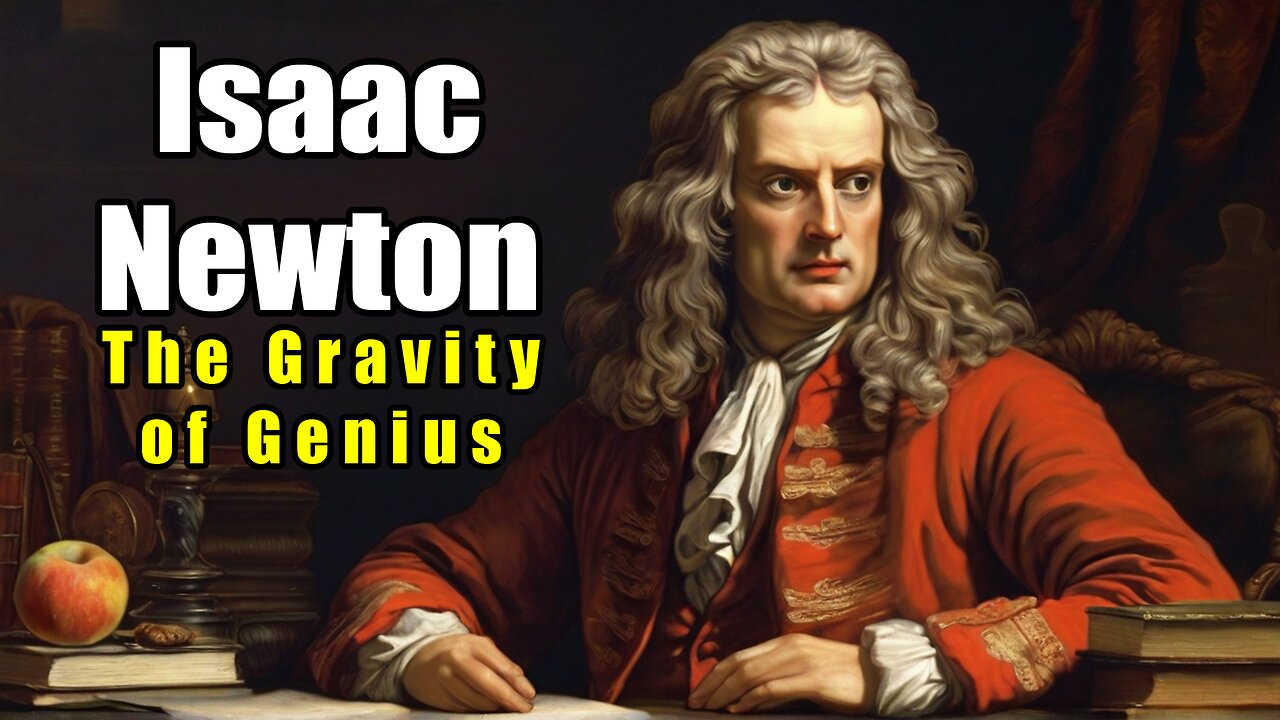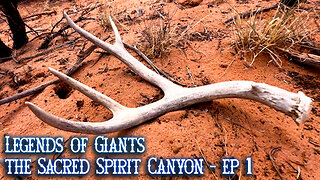Premium Only Content

Isaac Newton - The Gravity of Genius (1643 - 1727)
Isaac Newton (1642-1727) was an English mathematician, physicist, astronomer, and author who is widely regarded as one of the most influential scientists of all time. His contributions to the fields of physics and mathematics laid the groundwork for many scientific principles that continue to shape our understanding of the natural world. Here's a brief overview of Isaac Newton's life and his groundbreaking work:
Early Life:
Birth and Childhood:
Isaac Newton was born on January 4, 1642, in Woolsthorpe, Lincolnshire, England. He was born prematurely, and his father died three months before his birth.
Education:
Newton attended the University of Cambridge, where he studied at Trinity College. His interest in mathematics and natural philosophy (the early term for physical sciences) emerged during this period.
Scientific Contributions:
Laws of Motion:
Newton formulated the three laws of motion, which describe the relationship between a body and the forces acting on it. These laws are fundamental to classical mechanics.
Law of Universal Gravitation:
Newton proposed the law of universal gravitation, stating that every point mass attracts every other point mass in the universe with a force proportional to the product of their masses and inversely proportional to the square of the distance between their centers.
Calculus:
Independently of German mathematician Gottfried Wilhelm Leibniz, Newton developed calculus, a mathematical tool that became essential in solving problems related to motion and rates of change.
Optics:
Newton conducted experiments with prisms and demonstrated that white light is composed of a spectrum of colors. He published his findings in "Opticks."
Other Achievements:
Alchemy and Theology:
Newton had an interest in alchemy and spent considerable time studying theological matters. However, his contributions to science overshadowed these pursuits.
Publications:
Newton's most influential work, "Philosophiæ Naturalis Principia Mathematica" ("Mathematical Principles of Natural Philosophy"), was published in 1687. It laid the foundation for classical mechanics.
Later Life:
Royal Society and Knighthood:
Newton became a member of the Royal Society and later served as its president. He was knighted by Queen Anne in 1705.
Later Works:
In addition to his major contributions, Newton delved into various fields, including the study of planetary motion and the behavior of fluids.
Legacy:
Scientific Revolution:
Newton's work marked a pivotal moment in the Scientific Revolution, transforming the way people understood the natural world.
Newtonian Physics:
Newton's laws of motion and the law of universal gravitation form the basis of classical physics and continue to be applicable in many everyday situations.
Monumental Impact:
His impact on science is often summarized by the quote, "If I have seen further, it is by standing on the shoulders of giants."
Death:
Death and Burial:
Sir Isaac Newton died on March 31, 1727, in London, England. He was buried in Westminster Abbey.
Isaac Newton's legacy extends far beyond his groundbreaking scientific discoveries. His influence on the scientific method, the development of calculus, and the establishment of fundamental principles in physics shaped the course of scientific inquiry for centuries to come. The "gravity of genius" refers not only to his groundbreaking work on gravity but also to the profound impact he had on the intellectual landscape of his time and the centuries that followed.
-
 16:29
16:29
Mrgunsngear
1 day ago $0.72 earnedGirsan Witness 2311 Match X - Staccato XC On A Budget But Does It Work?
4.97K4 -
 14:54
14:54
Tundra Tactical
1 hour agoTundy's SIG MEME Review 2: The Reload!!!
2.03K -
 LIVE
LIVE
EricJohnPizzaArtist
5 days agoAwesome Sauce PIZZA ART LIVE Ep. #56: Bret “The Hitman” Hart Tribute with SoundBoardLord!
280 watching -
 LIVE
LIVE
GritsGG
6 hours agoWin Streaking! Most Wins 3180+! 🔥
326 watching -
 LIVE
LIVE
Due Dissidence
5 hours agoGaza STARVATION Hits Tipping Point, Flotilla CAPTURED, Bongino BREAKS SILENCE, Maxwell MEETS DOJ,
1,446 watching -
 26:54
26:54
Eat Sleep Cruise
2 days agoWe Tested The 10 Best Cruises for Couples - Here's How They Rank!
1.29K2 -
 33:05
33:05
CarlCrusher
1 day agoLand of the Giants | Return to the Sacred Spirit Canyon - Ep 1
1.21K4 -
 26:37
26:37
Fat Lip Collective
11 days agoHow I Designed 3D-Printed Mods for My Vintage Toyota KE25
5011 -
 18:04
18:04
LivingontheEmeraldCoastFlorida
14 days agoFREEPORT, FLORIDA! PROS AND CONS | The ULTIMATE moving guide! Full VLOG tour
349 -
 30:38
30:38
sewgarage
5 days agoGOLF MK2 dashboard upholstery process
323